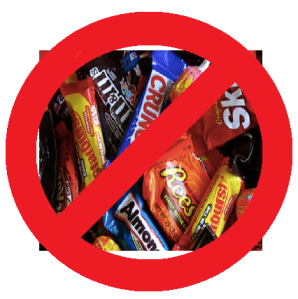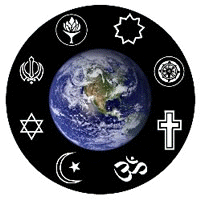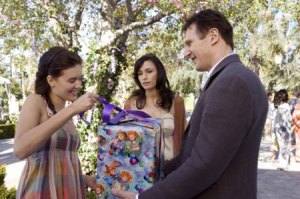Remember elementary school and all the crazed mania about head lice? I was lucky enough to never have the little buggers. If I ever had a close friend who did, I never knew about it. Like most 80’s kids, everyone knew “only dirty kids got head lice!” You know what? At eight years old in 1987, I was wrong.
There you have it. I was wrong. I knew only the propaganda about head lice that I’d heard from my peers. I knew nothing of the content of this article published August 21 of last year citing a clinical report which found only about 32% of cases “diagnosed” by school nurses, health care workers, teachers, etc. turn out to be actual lice or nits (lice eggs). The remainder were identified as scabs, hairspray, dandruff, sand and other “artifacts.” In this day and age, we also know that personal hygiene has nothing to do with who might contract head lice. Anyway, this post isn’t really about head lice. What I’m trying to convey is that my eight-year-old self thought she knew quite a lot about head lice. She (I) was wrong!
This post is really about racism and what we think we know about that word and what it means. Time and again, I’m hearing my peers make statements like, “I’m not racist!” “(Such and such) is NOT a racist statement.” Clearly, even in 2016, we white folks think we know a lot about racism, but what if we (like that little eight-year-old me in the 80’s) might be wrong?
For one thing, I’ve noticed that just like the kid sent home for having “nits in their hair,” we recoil from any association with the word “racism.” Our gut reads on our faces as we say, “Ew! Gross! So dirty! Not me!” We recoil from the word racism, because we’ve come to associate it with the horrifying stories we read in our social studies books in public school, the disgust we felt for the prosecutor when we read To Kill a Mockingbird and the tears that roll down our faces when we watch videos on television of young black men (and women!) being terrorized by law enforcement and greater society.
We know we would NEVER do those things. We know we would never push someone out of line, because we felt our skin tone makes us superior to them. We know we would never mace someone for bending down to pick up the wallet we just dropped, because he happens to be black. We know we would never raise a gun barrel against our darker brother simply because he’s darker. This might all be true, but it does not mean we’re not racist.
I was wrong about head lice in elementary school in 1987. I was wrong about racism in college in 2001. I was racist. Want to hear something more powerful. I am racist. All I have to do to expose my racist tendencies is to hit up good ol’ Google for a visual association test. I’ll save you the Googling. Go here. I first took a test similar to this one in 2004. I came up racist then. I come up racist now. Disagree with the testing format all you want. If it determines that you may be profiling people, then you are racist. It doesn’t mean that you’re going to go out and shoot the next dark-skinned person you see. It doesn’t even mean that meeting someone with darker skin at a coffee shop or another casual social venue that you’ll treat them any differently. All it means is that your brain works the way it’s been programmed by any number of factors that could include upbringing, our national media, the entertainment industry, your social circles, etc. Sure, it can mean a lot more, up to and including the ugliness we’ve seen throughout human history, which is why we recoil so strongly from it.
You know, maybe if we had a different word for this type of brain programming, it would be a little easier to accept. For example, what if we called these implicit preferences “profiling tendencies” instead of racism? Would you feel quite as judged if the statement were, “Most of white America has profiling tendencies,” rather than “Most of white America is racist?” But I think it’s important that we continue to use the words racism and racist, because the end result is the same whether we’re the person assuming that a black victim was a “thug” or the person actually pulling the trigger against him. It’s the bad jokes, the assumptions, the little everyday devaluations that allow for hundreds of black men and women to have their lives taken from them, and our country to remain complicit with that reality. This is where our higher selves come in. This is where we can work hard to rewire our brain and be better than our “programming.”
This is where you can be “racist” and still work against racism as I am/do. My racist programming runs deep, but so do my convictions to change this country, one person at a time. My college days of denying and lamenting that I was racist, being hurt over it and making it about me are over. It’s NOT about me. It’s about my brothers and sisters who live with more melanin and less trust from society. It doesn’t matter how uncomfortable it might make me that there’s programming in my brain that slants my view of them. Too bad. We really don’t have time for my hurt feelings. We’ve been out of time for that since long before I was born. Because it’s not about me, I need to put my feelings on the subject aside, and ask myself instead what can I do to help?
This is where the news is so good, because when I was in college, the sentiment coming from black activists and writers toward white people wanting to help and asking what they could do was, “Sit down and shut up.” Today, the sentiment has changed. The leaders of the Black Lives Matter movement are giving out encouragement to any and all people who want to help. They’re saying spread the word. They’re even saying that white people are more likely to listen to other white people and that they need our help. It’s so refreshing after 15 years to hear and answer these calls.
And anyone can do it. If you’re like me, it’ll feel uncomfortable at first, because you’ll get push-back from some of your friends. Plenty of people will tell you that you’re wrong, that US society isn’t inherently racist, that institutional racism doesn’t exist, and that there’s no problem with police brutality against people of color in this country. You may lose some friends, and the push-back may never entirely go away, but just like my hurt feelings in college, you have to ask yourself, is your social discomfort now, in this moment, really more important than the rights and safety (the entire future), of millions of people who happen to have darker skin than you?










